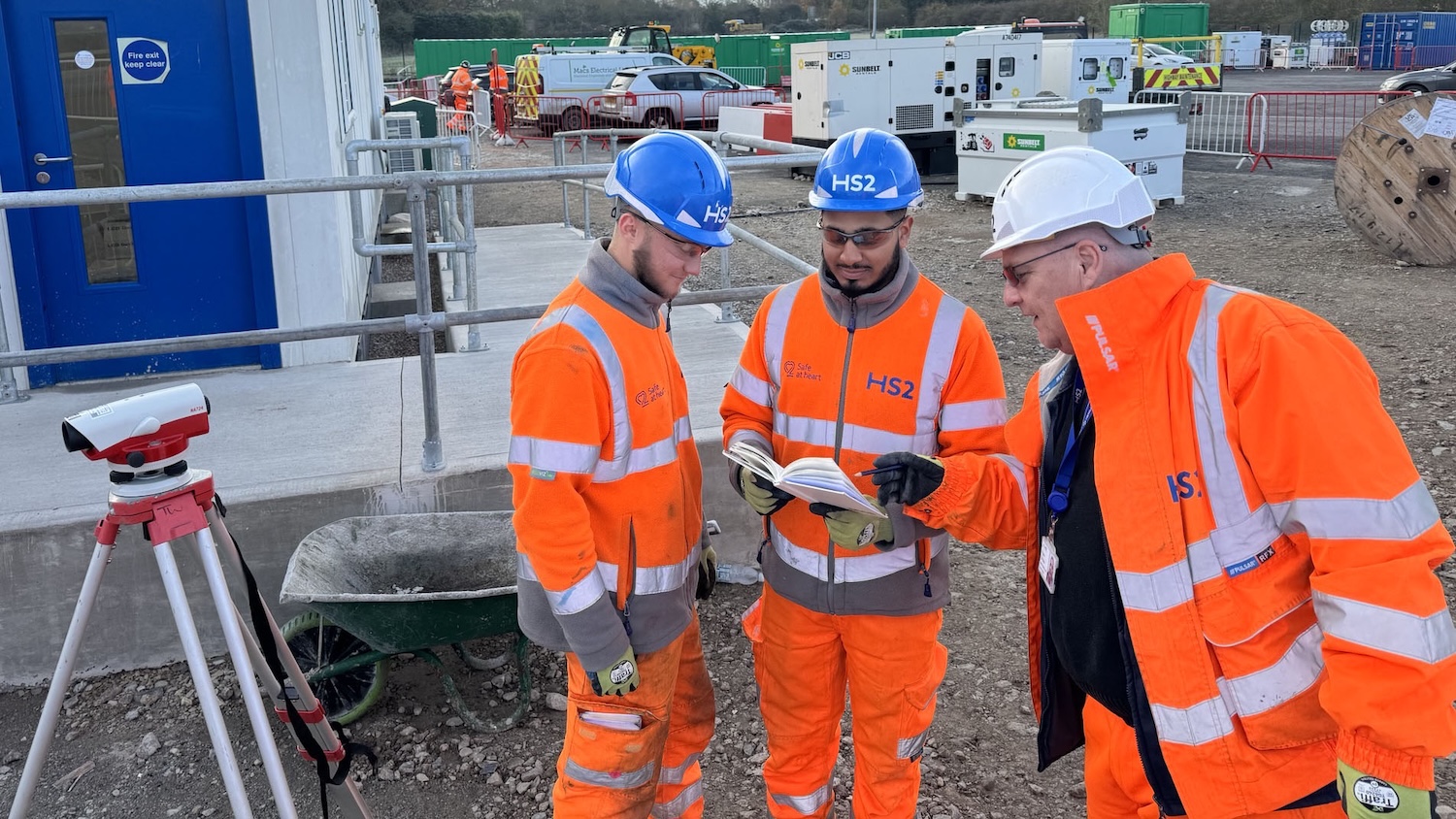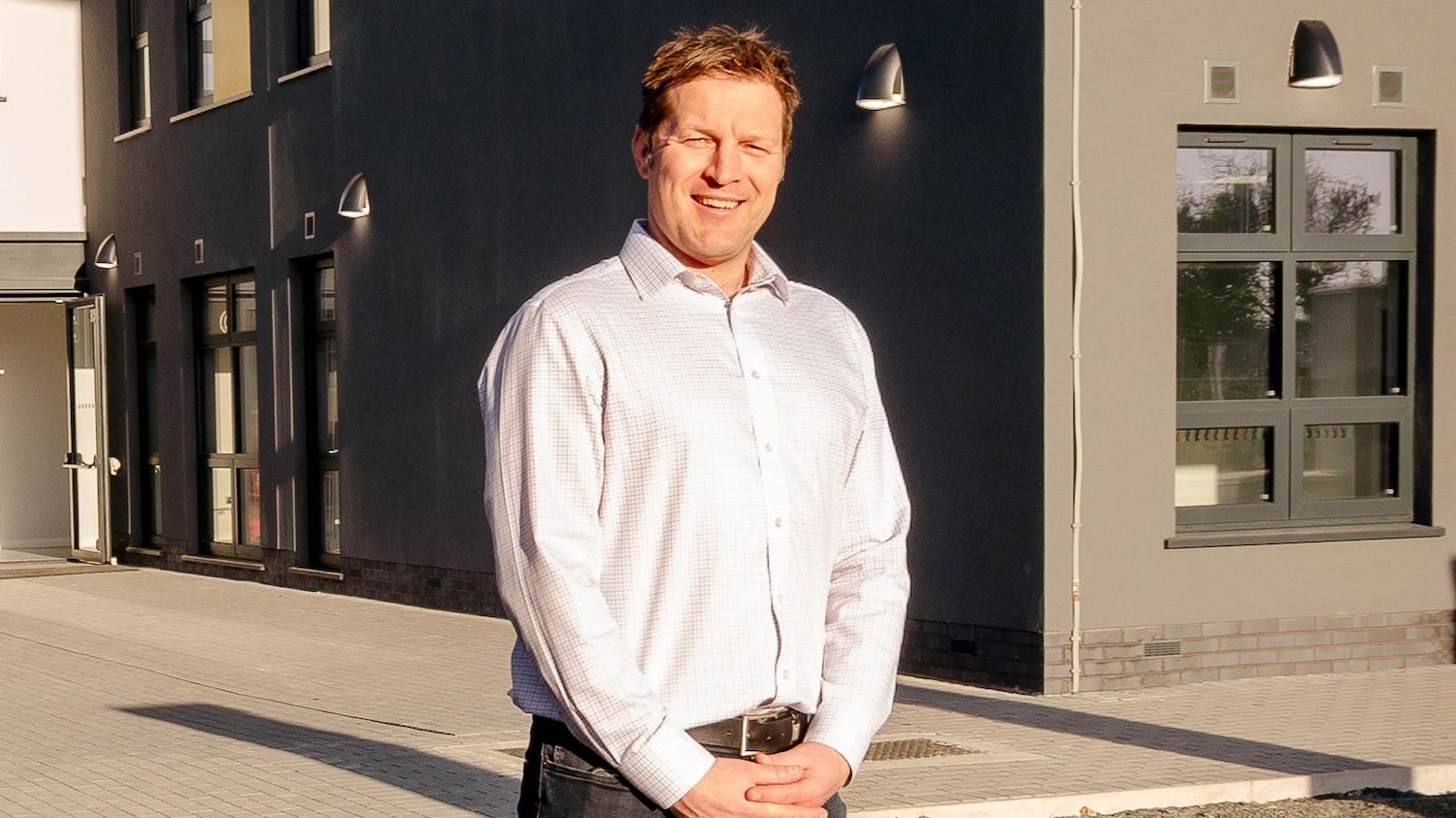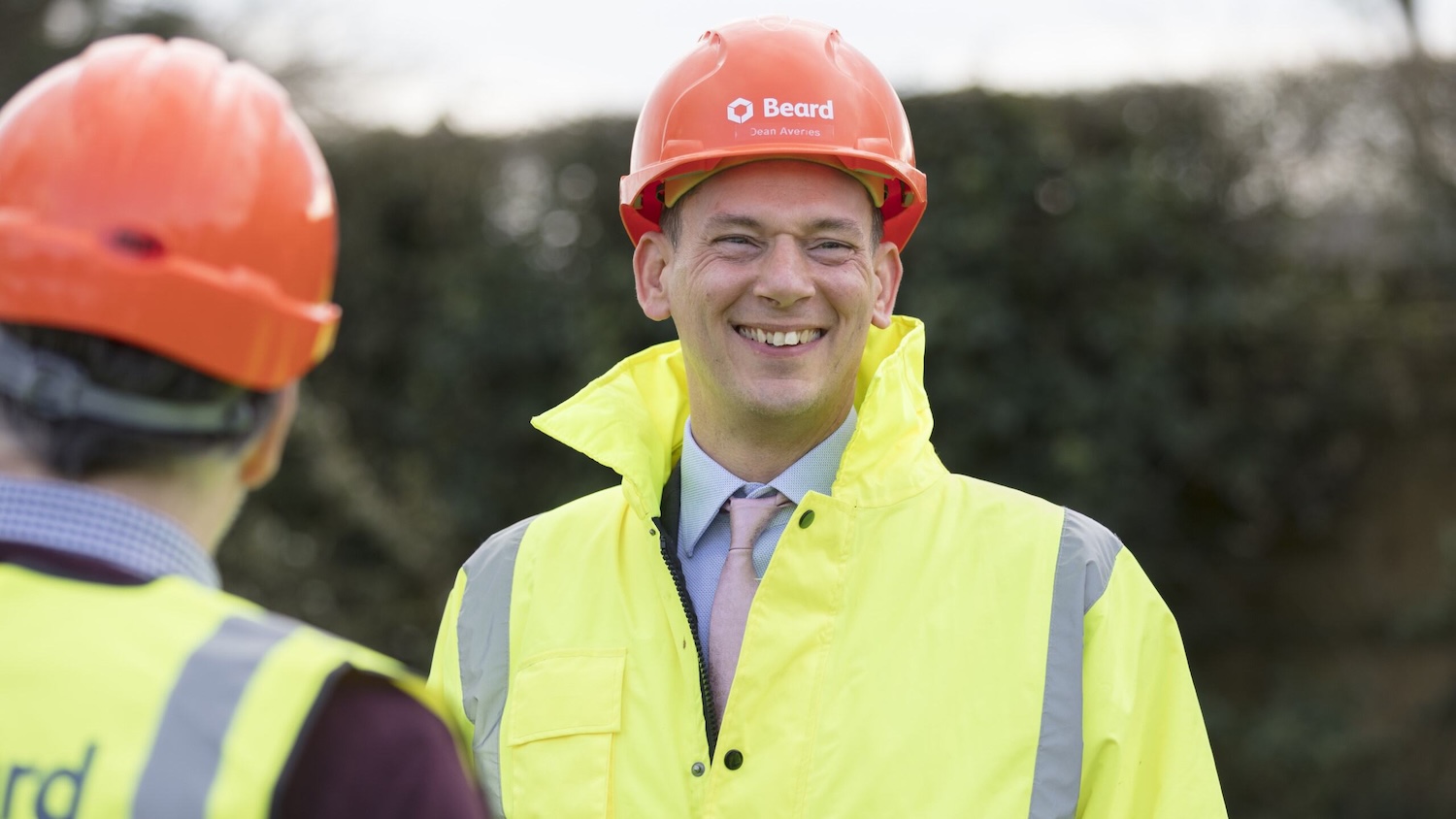
Job spotlight: construction manager, Balfour Beatty Vinci
Following his recent recognition at Balfour Beatty’s Icon Awards, Frank O’Hare shares his experience of carving a successful career in construction while supporting the next generation of talent
What was your route into construction?
I started in the industry at the age of 17 as an apprentice, working in the land surveying department of a civil engineering consultancy.
From there, I moved to a dedicated land surveying company before joining Alfred McAlpine as a setting-out engineer.
Each step gave me invaluable experience in the field, laying the foundations for my current role at Balfour Beatty Vinci – HS2’s main works civils contractor for the West Midlands – in construction management.
What is a typical day in your job?
No two days are the same, but my duties generally involve a mix of site visits, planning, coordination and on-site work.
While I am responsible for the team and managing the work, I certainly don’t do it alone; it’s thanks to my team’s dedication and effort that we achieve our goals. Our fantastic, collaborative approach – including with the client – is essential to our success.
I work closely with our client and our designer partners on planning, scheduling and resource allocation, maintaining open communication to align expectations and address any concerns early.
This collaboration extends to coordinating the timely ordering of equipment and materials, ensuring that every decision reflects the client’s priorities.
What are the main challenges and rewards of your role?
As with any major project of this scale, we have to remain agile so that if any challenges arise, we can adapt accordingly.
This flexibility ensures that we can continue to operate efficiently and keep progress on track while minimising delays and potential disruptions.
It goes without saying that seeing a project through from start to finish is a great accomplishment, working with various subcontractors, designers and the broader Balfour Beatty Vinci team.
There’s a sense of pride in driving past completed structures and being able to tell my grandkids: “Your Grandad built that.”

For me, watching young engineers grow in confidence and competence as the project progresses is particularly rewarding, which is why I decided to become a mentor.
Guiding and supporting the next generation allows me to share my experience, help them navigate challenges, and foster their development into skilled professionals.
It’s incredibly fulfilling to see their growth and know that I’ve contributed to their journey.
As a mentor, what have you learned from working closely with the next generation of professionals?
The industry has changed significantly since I started, and I’ve noticed a real shift in how young professionals approach the work – especially since the Covid-19 pandemic.
Today’s young people are more vocal and unafraid to share their views, which in turn brings new ideas to the table and challenges us to think differently.
Their enthusiasm for learning, attentiveness to advice, and receptiveness to new technologies – especially those that save time – are incredibly valuable in a fast-evolving industry.
Their technological fluency often amazes me, as it not only accelerates problem-solving but also drives innovation and efficiency across the project.
Their openness and willingness to speak up ensures fresh perspectives are always considered and creates a collaborative environment where everyone grows and improves together.
The technological fluency of young people often amazes me, as it not only accelerates problem-solving but also drives innovation and efficiency across the project
You were recently recognised at Balfour Beatty’s inaugural Icon Awards for your commitment to bringing on early talent. What advice would you give to other construction leaders who want to better support young professionals?
This year alone, I have supported and mentored 11 apprentices and 20 summer placement students.
Balfour Beatty Vinci does a great deal to nurture young talent through these sorts of opportunities, which I believe is essential.
My advice to leaders would be to offer new professionals the chance to shadow experienced team members. They can learn an incredible amount just by observing.
In the past, new apprentices were often expected to figure things out on their own. Today, we recognise the value of a more supportive approach.
Gradually increasing responsibility allows them to build confidence and develop their skills at a steady pace, ensuring they feel empowered rather than overwhelmed.
This approach helps them grow into their roles more effectively, setting them up for long-term success.







